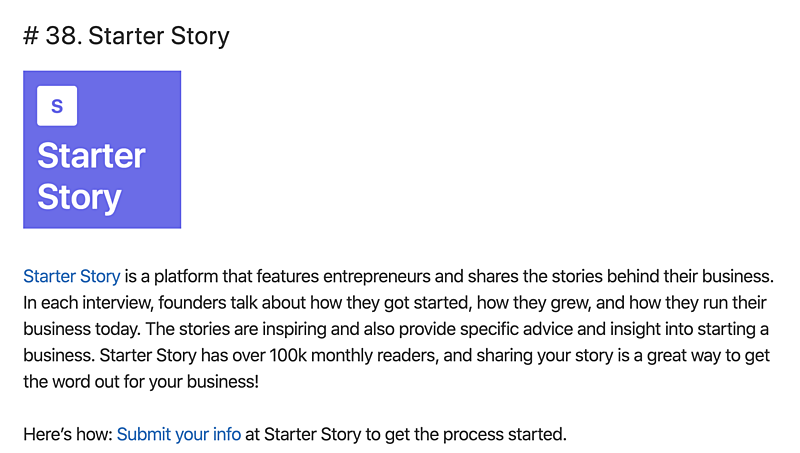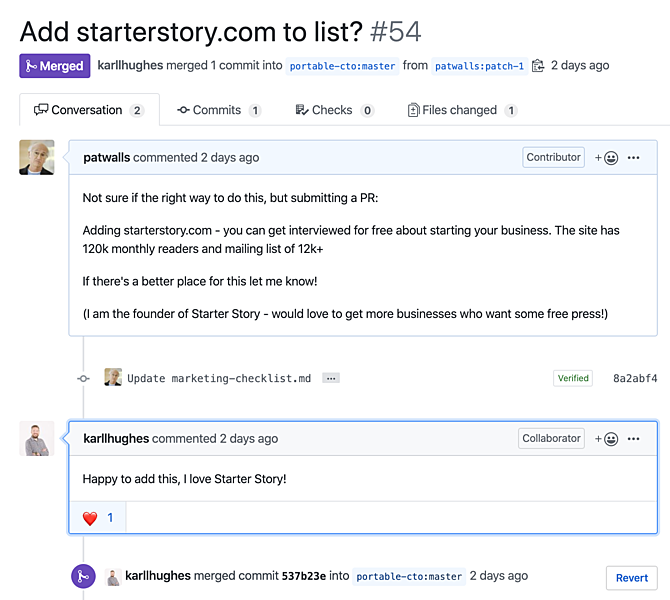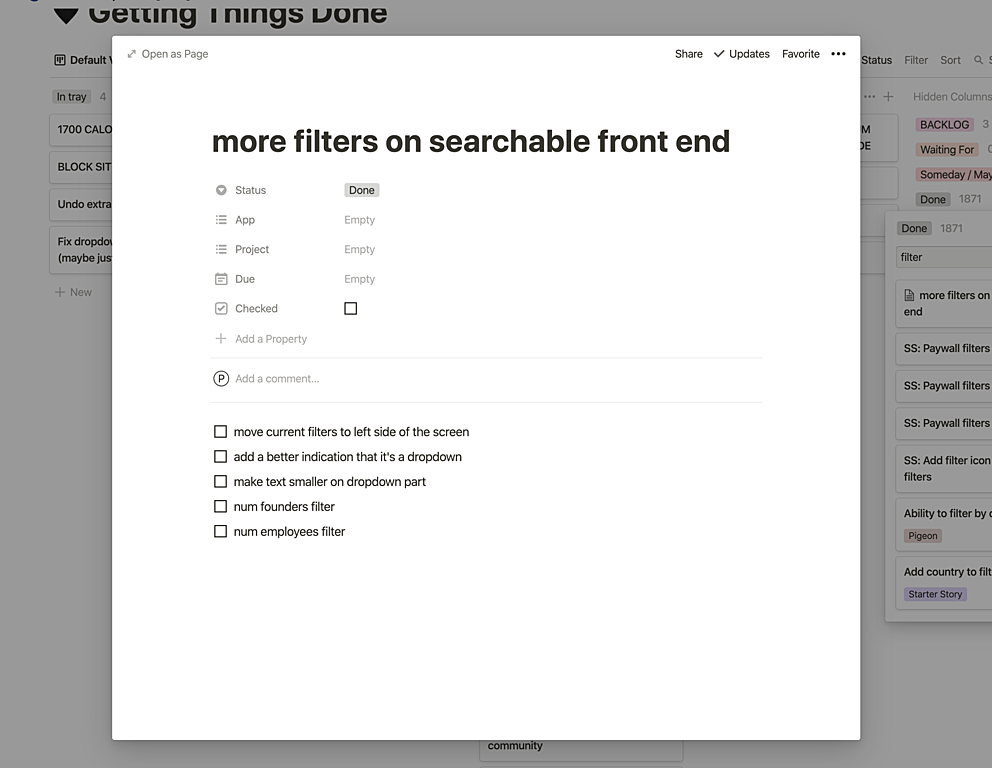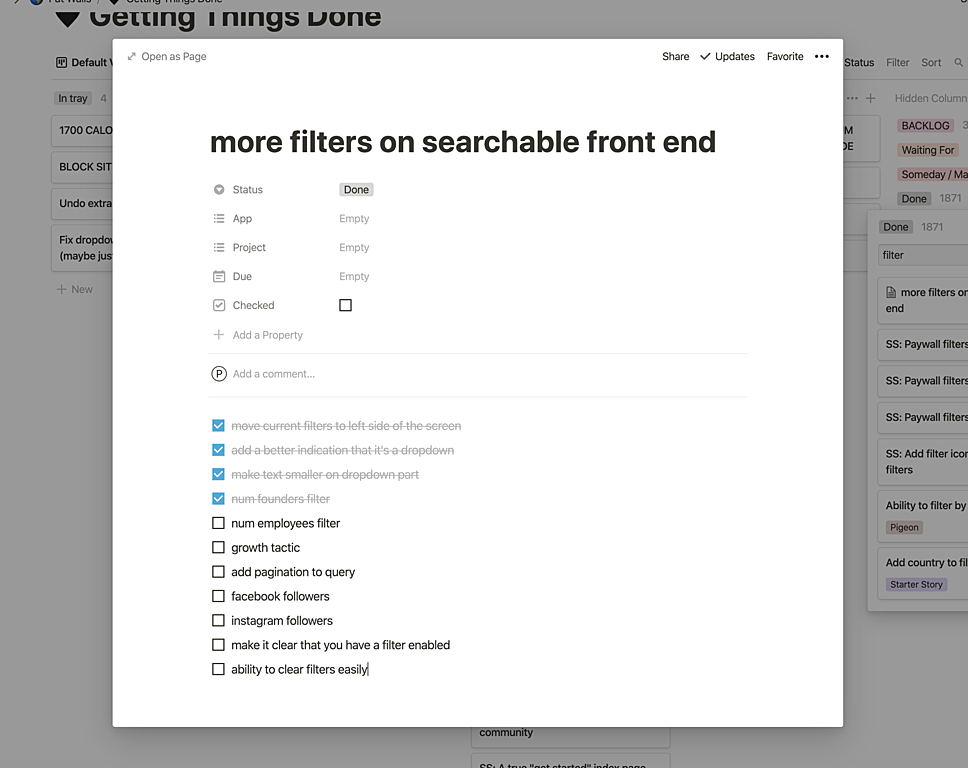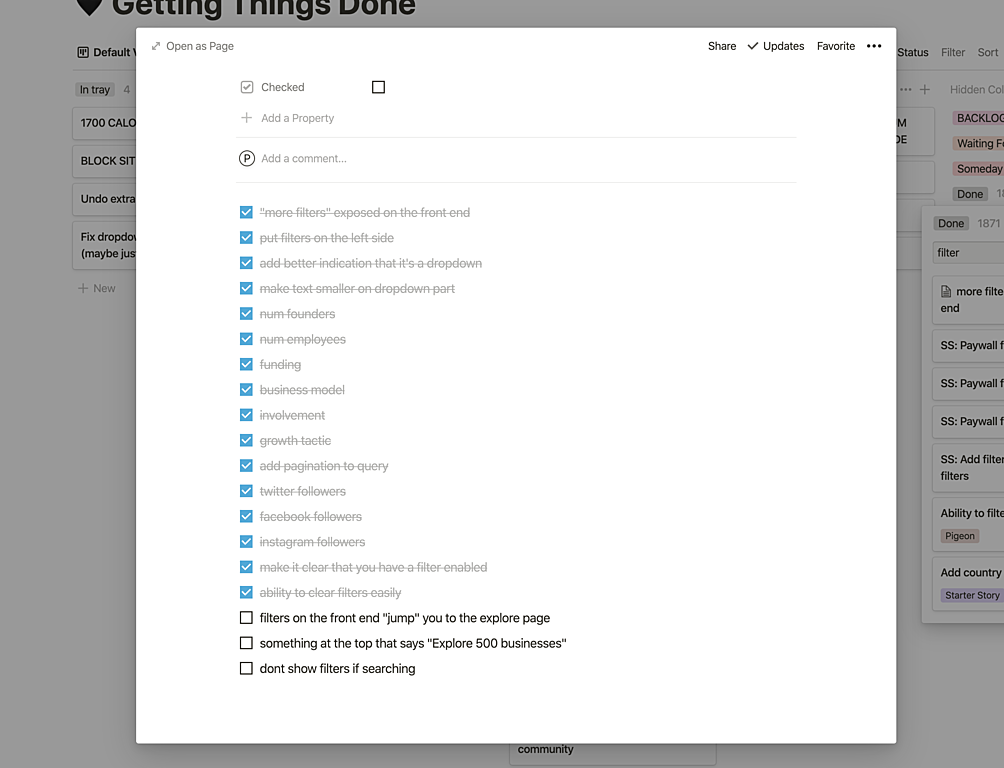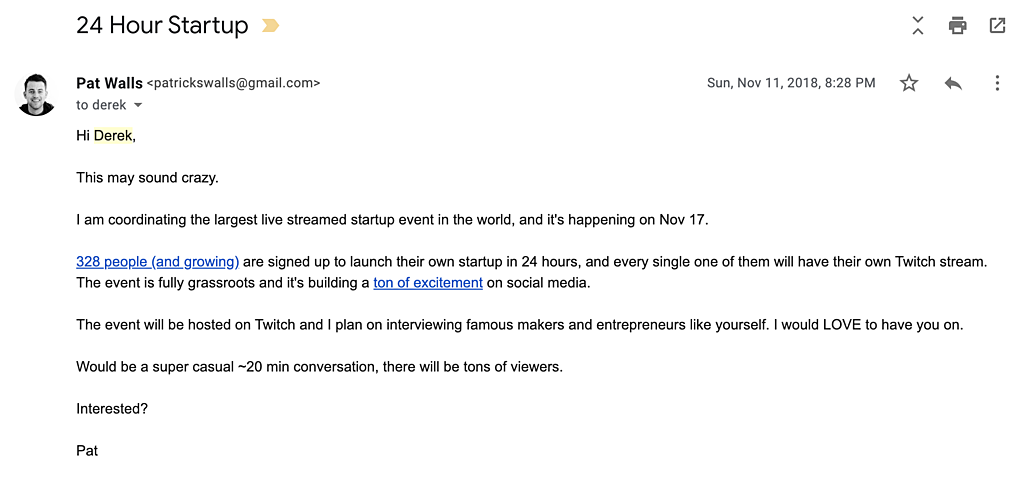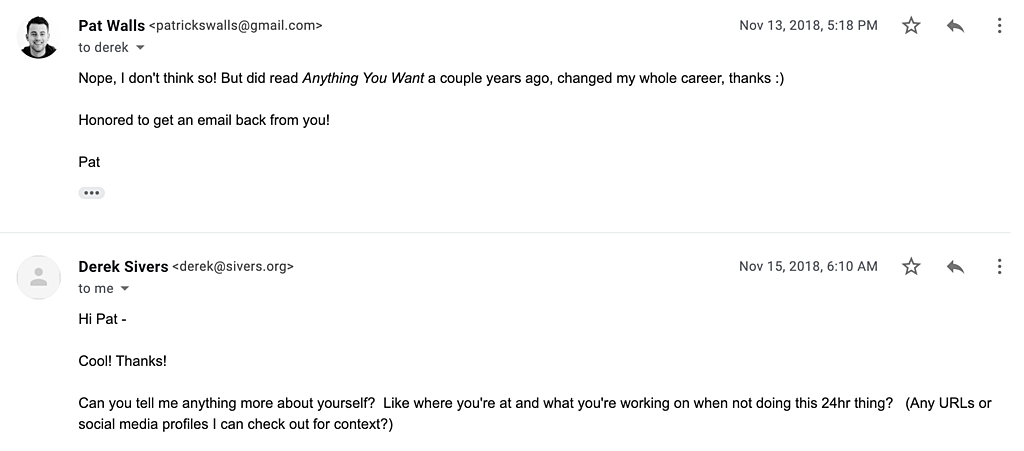February 20th, 2020
The obsession with "trends" is a bit strange to me.
Don't get me wrong, I think trends, data, and analysis are important - if you're an investor it's very important. If you trade stocks, extremely valuable. But if you're an entrepreneur, stay the fuck away.
While it may be valuable to look at trends when first starting out, you need to pick something to work on and give it 100% of your efforts.
Once chosen, I think it's best to consciously not look at new ideas until you've given your new one a fair shot. Any time spent looking at new ideas is time wasted on your actual idea and hurting your chances of being successful.
Trends and data will surface great info (to get started), but they can only tell you so much. Executing and being in the trenches will be the real tell for any business idea, validation, the market, competitors, etc.
Trends are exciting and I can understand why people get excited about it. But it makes me feel like shit when I see entrepreneurs talking about trends and data and not actually working on something. I think this obsession with trends is very harmful if you are an early founder or plan to be a founder.
So let's stop pretending like we're VCs and chatting around the water cooler about the latest industry trends.
(this is just my opinion)
Don't get me wrong, I think trends, data, and analysis are important - if you're an investor it's very important. If you trade stocks, extremely valuable. But if you're an entrepreneur, stay the fuck away.
While it may be valuable to look at trends when first starting out, you need to pick something to work on and give it 100% of your efforts.
Once chosen, I think it's best to consciously not look at new ideas until you've given your new one a fair shot. Any time spent looking at new ideas is time wasted on your actual idea and hurting your chances of being successful.
Trends and data will surface great info (to get started), but they can only tell you so much. Executing and being in the trenches will be the real tell for any business idea, validation, the market, competitors, etc.
Trends are exciting and I can understand why people get excited about it. But it makes me feel like shit when I see entrepreneurs talking about trends and data and not actually working on something. I think this obsession with trends is very harmful if you are an early founder or plan to be a founder.
So let's stop pretending like we're VCs and chatting around the water cooler about the latest industry trends.
(this is just my opinion)

